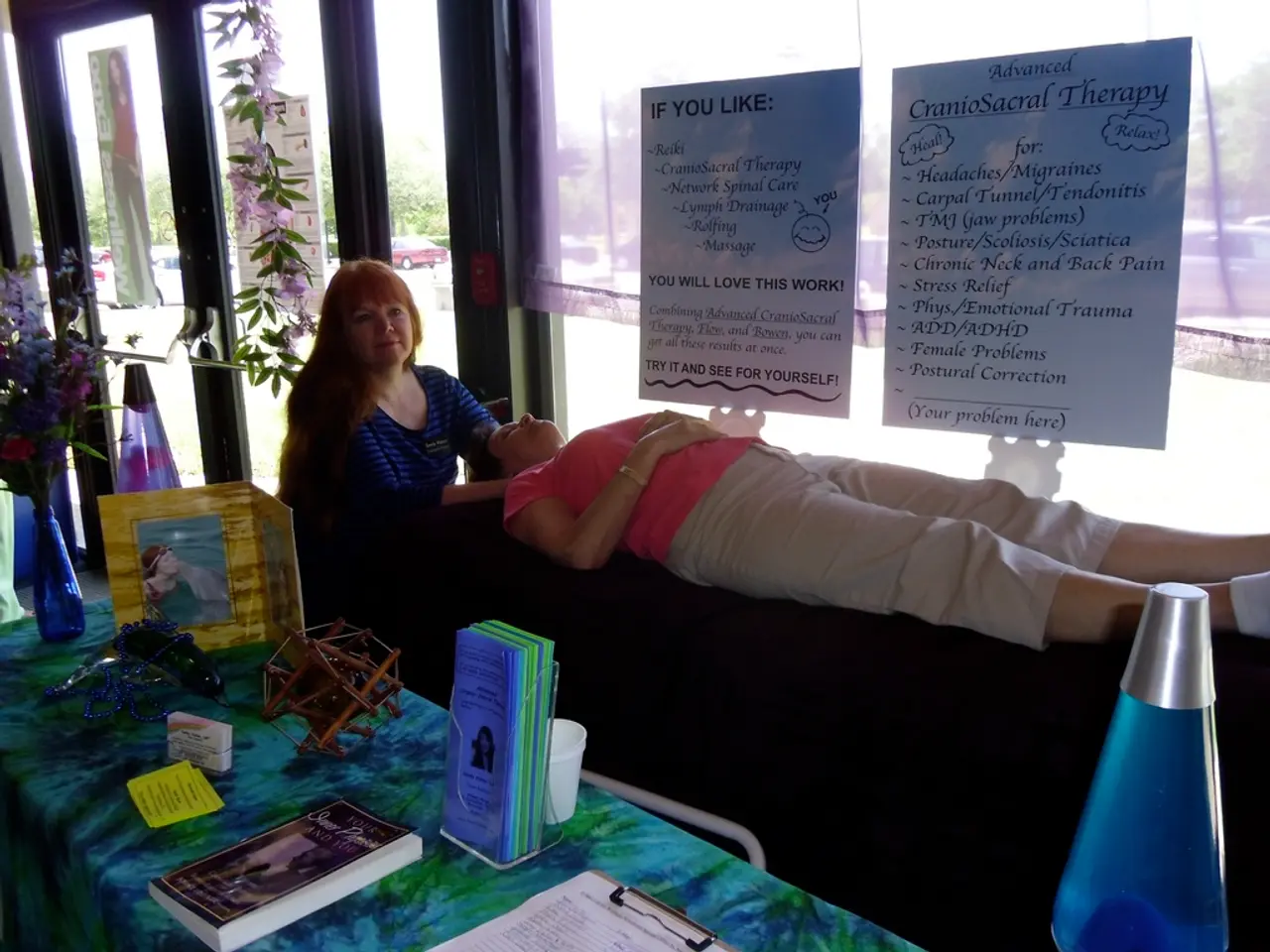Foundations of Mental Wellness: Rest, Nutrition, and Physical Activity
In the pursuit of maintaining a balanced and resilient mind, it's essential to consider three key factors: sleep, diet, and physical exercise. These elements, when harmonised, significantly influence mental health by affecting brain chemistry, cognitive function, mood regulation, and emotional resilience.
Sleep
Chronic sleep deprivation can have a detrimental impact on mental health. By reducing neurotransmitters like serotonin and dopamine that regulate mood, it increases the risks of depression, anxiety, and mood disorders. Poor sleep also impairs cognitive functions such as memory, concentration, decision-making, and emotional regulation. This creates a vicious cycle where poor sleep worsens mental health, and mental health disturbances disrupt sleep further. Sleep deprivation can also lead to risky decisions and diminished emotional processing accuracy [1][3][5].
Diet
Nutrition plays a significant role in mental health, particularly through the gut-brain axis. Gut microbiota influence brain function by producing neurotransmitters and regulating stress and inflammation. Poor diets—especially high in added sugars—can disrupt gut microbiota balance, exacerbating anxiety and depression. Conversely, diets rich in omega-3 fatty acids (found in fatty fish) can reduce inflammation, enhance neurotransmitter function, and stabilise mood, thereby supporting mental health [2].
Physical Exercise
Regular moderate to vigorous exercise enhances sleep quality by reducing the time to fall asleep and improving sleep efficiency. Good sleep, in turn, supports better mood and cognitive function, which motivates ongoing physical activity. People with poor sleep or sleep disorders tend to be less physically active, suggesting a bidirectional relationship. Exercise itself can directly reduce symptoms of anxiety and depression, improve mood, and increase resilience to stress [4].
These factors interact: good sleep supports exercise, a healthy diet fosters a balanced gut-brain axis aiding mood regulation, and exercise improves sleep and cognitive health, all of which contribute to better mental well-being [1][2][4][5].
- Physical activity promotes the production of serotonin and dopamine, key neurotransmitters to regulate mood and combat disorders such as anxiety and depression.
- A balanced diet rich in essential nutrients contributes to emotional well-being.
- Prioritising homemade meals is a key step for comprehensive well-being.
- A diet rich in sugars and ultra-processed foods can cause inflammation in the body, including brain inflammation, associated with memory and emotional regulation problems.
- B vitamins help maintain energy levels and emotional stability.
- Avoiding the use of electronic devices before going to sleep can improve sleep quality.
- Even moderate activities, such as walking or yoga, can make a significant difference to mental and overall well-being.
The World Health Organization recommends at least 150 minutes of moderate physical activity per week, while maintaining an active routine improves the quality of sleep. Setting regular bedtimes and wake-up times helps synchronise the circadian rhythm. Incorporating fresh and varied foods into your diet is an effective way to take care of your mental health. Omega-3 fatty acids promote neuronal communication and are essential for brain function, while antioxidants combat oxidative stress, which can negatively affect the brain.
In essence, mental health is essential for general well-being, and sleep, diet, and physical exercise play a crucial role in maintaining a balanced and resilient mind.
Read also:
- Increased Chikungunya infections in UK travelers prompt mosquito bite caution
- Kazakhstan's Deputy Prime Minister holds discussions on the prevailing circumstances in Almaty
- Undermining Authority in HHS: Actions by RFK Jr. Damage Expert Consensus
- Cats in Dusseldorf undergo forced castration following neutering procedure





